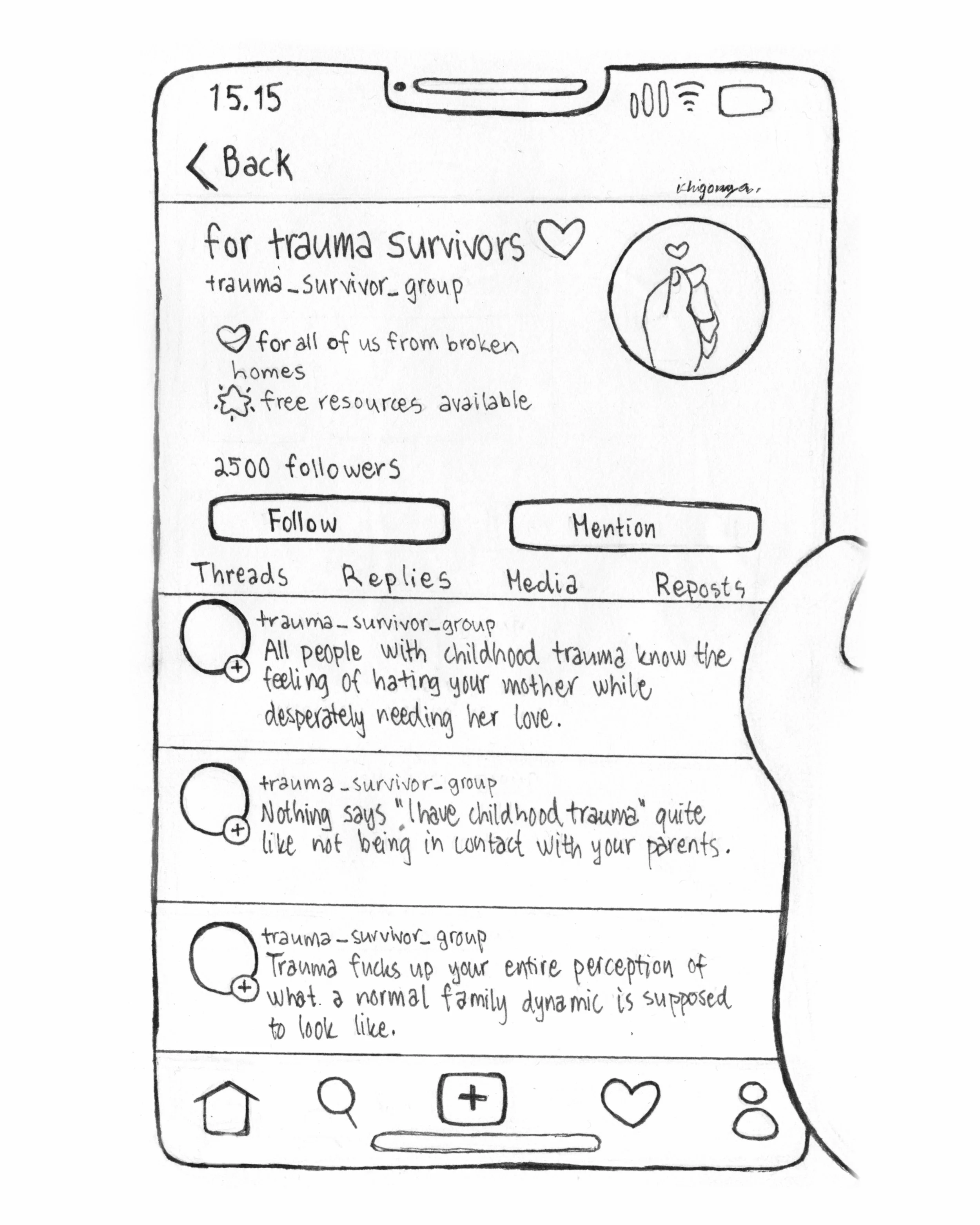Not One of Them
For the longest time, one of my biggest struggles as a traumatized individual has been not being able to feel like I am one. At face value, this might seem like a shallow or superficial problem to have, but at its very core, it has become one of the main contributors to my ever-present feelings of loneliness, desperation, and being neglected by everyone around me. As much as I have tried to tell myself that there is no reason for me to lack the sensation of having the identity and struggles of someone with childhood trauma, the way society at large treats people like me is the one at fault, and I am not in control of any of that. So I am left with the gnawing feeling of being alone and outcast in a space where I should find comfort in.
But why is that, exactly?
socials.
You know what they say about finding people with similar struggles? Support groups are a major treatment method for everything related to mental health, whether it’d be grief, alcoholism, or traumatic events. It has been proven by medical science time and time again that gatherings with people who share the basis of their problems is beneficial for the recovery process of all individuals in the group. Some support groups like AA, for example, have been able to sustain its members and their mental well-being without any medical intervention: a lot of AA members don’t have any other form of treatment for their alcoholism than the group and have been able to stay sober for decades to come.
When it comes to support groups for victims of trauma, they are usually based on the type of trauma that the members all share. Grief support groups, sexual assault support groups, domestic violence support groups…. you name it. It is commonplace to find such groups for victims of childhood trauma, as well. Childhood trauma is its own beast, its impact on the victims’ psychological development is vast, and many victims share diagnoses such as personality disorders and dissociative disorders due to the severe impact the trauma has had on them. It makes sense for them to all gather together to talk about their experiences that are very unique to their life circumstances.
There is one problem, though.
More often than not, childhood trauma support groups, whether it’d be online communities on social media or actual real life meetings in a set location, have one common assumption made about all the victims: they have all been traumatized by their families.
This notion doesn’t apply to me, as we have established over the years. It also does not apply to people who have been traumatized by caretakers outside of their immediate family. Especially for victims of bullying, this assumption excludes us from the rest of childhood trauma victims. Our existence is not noticed or acknowledged in these communities, and we are once again left on the shores, only to witness the joy of finding comfort and solace that other victims get to experience with one another.
Being severely traumatized by my peers instead of my family members has left me feeling empty on the inside. It feels like there is a part missing in me, something that should be there but simply isn’t because of the differing circumstances of my past abuse. Childhood trauma is that type of trauma that shapes you as a person and changes parts of your identity without you having any control over it. I have always felt like that part of my selfhood, the part that has “victim of childhood trauma” on it, has been left hollow. It is like a room without furniture, an empty space inside my soul that yearns for connections with other victims. But when every single group setting involving people who I should be able to relate to excludes people like me, it becomes increasingly more difficult to find the notion of feeling like I belong.
And maybe that is the reason why I want to give other victims of bullying a place to be, to feel like it is meant for you. We have been traumatized by our peers abusing us to the same extent someone else has been traumatized by the abuse they faced at the hands of their family members, and we deserve to feel like we are part of something too. Building a place like that from the ground up has been one of the most fulfilling tasks of my life, and I want to thank you for giving me that opportunity.
May you feel connected to that part of yourself that has been damaged – in a way you truly deserve.
Embracing you,
ichigonya
